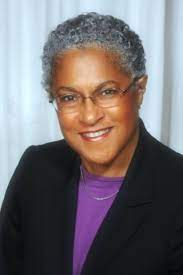Collins Hill, Patricia

Bio: (1948-) American sociologist. Patricia Hill Collins teaches at the University of Maryland. In her book Black Feminist Thought (1990), she outlines a theoretical approach to feminism built from the perspective of the experience of African-American women. Oppression can be based on several grounds: race, gender, class, sexuality, etc. These multiple systems of oppression intersect and form a structure of power and domination. For the phenomenon of the intersection of several forms of domination, she uses the term "intersectionality", which was introduced to the social sciences by Kimberlé Crenshaw. Collins dedicates an entire book to this phenomenon - Intersectionality (2016). She emphasizes how much the experience of slavery shaped all the relationships that black women have in the spheres of family, community, and work. That experience led to the creation of a political context for the intellectual work of African-American women. Collins criticizes most feminists because they ignore the experience of African-American women, and only write from their own middle-class white experiences. She believes there exist biases, both men-centered in the male African-American theory and racial bias in the white feminist theory.
Collins developed an African-American feminist epistemology that emphasizes the importance of self-defined knowledge for group empowerment. Empowerment is necessary in order to leave the matrix of domination. Empowerment will come with the development of: personal responsibility, experiential wisdom, feminist discourse, and empathy. Empowerment of African American women cannot take place as long as there is discrimination and social exclusion. Collins believes that only the experience and knowledge gained by vulnerable groups, especially African-Americans, can provide critical and self-defining resistance. Living and working within the community, socializing, listening to music, and especially through, what she calls "motherwork", creates a special type of experience that is specific to African American women. Motherwork refers to the care, not only of one's own children but also to the care of children from the wider family and community. Maternal work erases the differences between the private and the public; the family and the community; oneself and others. Collins also researched how sexual policy overlaps with minority policies in the United States, that is, how attitudes and beliefs regarding sexuality and sexual behavior crucially affect racial, gender, and class inequalities in American society.
Fields of research
Culture Domination Ethnicity Family Gender Knowledge Patriarchy Politics Power, Political Privacy Protests Race SexMain works
Black Feminist Thought: Knowledge, Consciousness, and the Politics of Empowerment (1990);
Race, Class and Gender (1992);
Fighting Words: Black Women and the Search for Justice (1998);
Black Sexual Politics: African Americans, Gender, and the New Racism (2004);
From Black Power to Hip Hop: Racism, Nationalism, and Feminism (2006);
Another Kind of Public Education: Race, the Media, Schools, and Democratic Possibilities (2009);
The SAGE Handbook of Race and Ethnic Studies (2010);
On Intellectual Activism (2012);
Intersectionality (2016);
Intersectionality as Critical Social Theory (2019).

